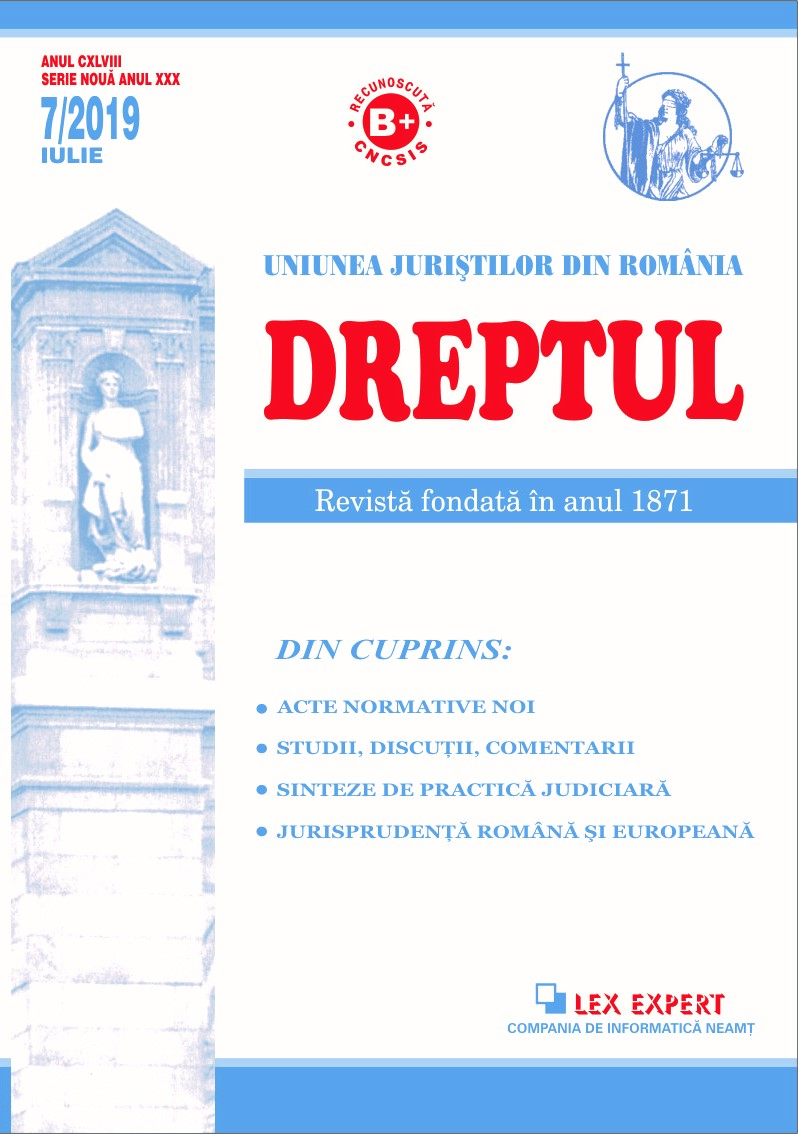Despre registrele profesioniștilor din perspectiva Codului de procedură civilă
About the registers of the professionals from the perspective of the Civil Procedure Code
Author(s): Maria FodorSubject(s): Civil Law
Published by: Uniunea Juriștilor din România
Keywords: Civil Procedure Code; Civil Code; registers of the professionals; registers legally kept; unlawfully kept registers; probative force; appearance; communication;
Summary/Abstract: The registers of the professionals are the main tool for knowledge, recording and control of their activity. Along with these functions, the registers of the professionals also have a probative function, the legislator including them in the category of documents under private signature, although they do not constitute a proper written evidence, but an improper one. The entries made in the registers are not made for the purpose of constituting an evidence, but of keeping the records, as established by law. But, through these entries, the professional practically recognizes the attested circumstances, the operations performed.The legal regime of registers of the professionals derogates from the principle of nemo sibi titulum constituere potest, a derogation which is explained by the nature and functions of the registers of the professionals, as well as by the conditions established by the law for keeping them.The Civil Procedure Code lays down the general rules referring to the probative force of the registers of the professionals (therefore, of the registers of all professionals, and not only of the traders’ registers), distinguishing, from a probative point of view, between the registers drawn up and kept in compliance with legal provisions and the registers kept in non-compliance with the legal provisions.The provisions of Article 280 of the Civil Procedure Code (called „Registers of the professionals”) are applicable only to registers, and not to other categories of documents, such as invoices, telegrams, faxes, receipts, etc., from professionals. The registers of the professionals can not bring evidence against the foreigners concerning the relationship among professionals, even if they are regularly kept.The delimitation of the legal relations between professionals from other civil legal relations is based on the concepts of professional and enterprise, concepts whose meanings are specified in Article 3 of the Civil Code, and Article 8 (1) of the Law No 71/2011 for the implementation of the Civil Code includes in the notion of „professional” the categories of „trader, entrepreneur, economic operator, as well as any other persons authorized to carry out economic or professional activities”.The records of the professionals kept in compliance with the legal provisions can give full evidence in court, both to the contrary and in favour of those who keep them, provided that the dispute is between professionals and concerns operations or legal acts which constitute facts and matters related to their professional activity.The registers of professionals, unlawfully kept, can not represent evidence in court in favour of those who have kept them. These registers provide evidence against the professional who kept them, but the part that prevails on them can not divide their content.The evidence resulted from the registers of the professionals is left by the legislator at the sovereign appreciation of the court, whether or not they are legally kept. The court can base its own solution even on other evidence. But, it must motivate the admission or removal of the registers as means of evidence.The registers of professionals may be presented in the trial by appearance or, as the case may be, by communication, or may be investigated by rogatory commission, provided that the documents or registers are in another court jurisdiction.
Journal: Revista „Dreptul”
- Issue Year: 2019
- Issue No: 07
- Page Range: 47-60
- Page Count: 14
- Language: Romanian
- Content File-PDF

